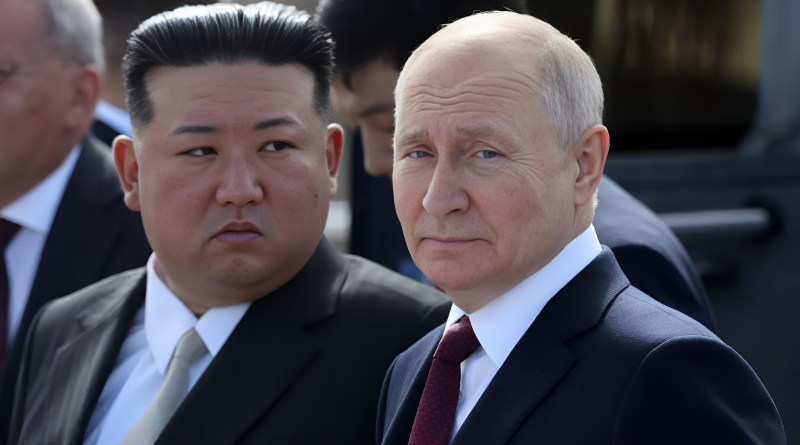Vladimir Putin to visit North Korea to re-instate vintage war-led relations
Russian President Vladimir Putin may visit North Korea for talks with leader Kim Jong Un, as relations between the two countries have warmed amid Russia’s growing isolation from the West over its war in Ukraine
Historically, North Korea was formed with Putin’s backing during the early Cold War, relying heavily on Soviet aid until the USSR’s collapse in the 1990s. Initially, Kim Jong Un’s relationship with Russia was excellent, as both Russia and China joined the United States in imposing sanctions on North Korea over its nuclear tests. However, as Russia faced increasing isolation, it began to see value in closer ties with North Korea. Russia and China have opposed new sanctions on North Korea, blocking U.S.-led initiatives in the U.N. Security Council. In recent years, Kim has taken steps to improve relations with Russia, meeting Putin in 2019 and visiting the Vostochny space launch facility in 2022. They discussed cooperation, including satellite development. In July 2023, Russian Defense Minister Sergei Shoigu visited Pyongyang and attended a military parade featuring North Korea’s banned ballistic missiles.
North Korea has supported Putin’s actions in Ukraine, recognizing the independence of Russian-claimed Ukrainian regions and supporting Russia’s annexation efforts. The U.S. has accused North Korea of transferring weapons to Russia, with debris from a missile that landed in Kharkiv in January 2023 identified as a North Korean Hwasong-11 series ballistic missile. Both nations have denied these accusations but have vowed to deepen military relations with discussions on joint military exercises. Despite U.N. sanctions, Russia and North Korea resumed train travel and oil exports. Putin has discussed it via officials employing North Korean laborers, despite U.N. bans, and using them to help rebuild war-torn areas in Ukraine. Putin’s potential visit underscores the deepening ties between Russia and North Korea, driven by mutual benefits and geopolitical necessities.
[Image Source: Economist]




